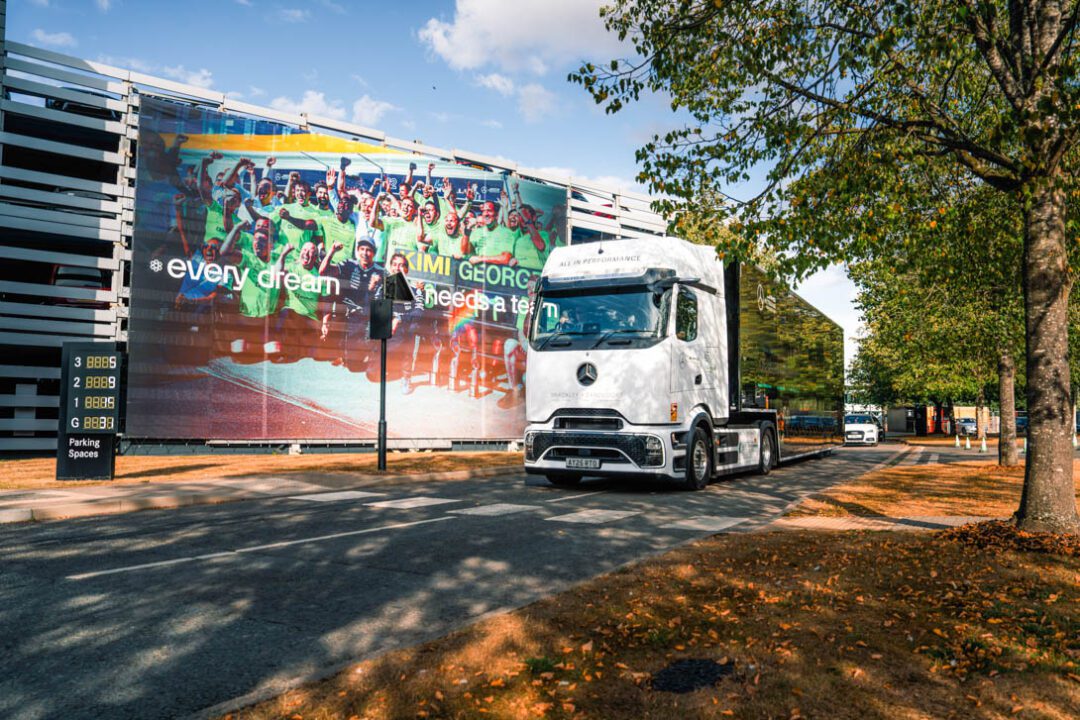
Powered by continued collaboration with Title and Technical Partner PETRONAS, this year’s rollout builds on trials first initiated in 2022, and marks a significant leap forward in the team’s journey toward Net Zero. Since the start of the HVO100 initiative, the team has successfully avoided over 1,190 tonnes of CO₂e emissions in its European logistics operations.
HVO100, a second-generation drop-in biofuel, delivers up to 81% lower emissions compared to conventional diesel, making it a game-changer for sustainable motorsport logistics.
“Our sustainability strategy is built on innovation on and off the track,” said Alice Ashpitel, Head of Sustainability at Mercedes-AMG PETRONAS F1 Team. “Every kilometre travelled using biofuel moves us closer to Net Zero by 2040. We’re proud to be driving change—not just in racing, but across every part of our operations.”
The team’s long-term vision includes expanding HVO100 usage to race locations beyond Europe, and further integrating the Mercedes-Benz Trucks e-fleet into future seasons. Following a successful pilot at the 2025 British Grand Prix, the team completed its first long-distance journey using the all-electric eActros 600, transporting W16 race cars from Brackley to Zandvoort—a 673 km trip for the Dutch Grand Prix. With rapid charging capabilities, the eActros 600 can reduce lifecycle CO₂e emissions by up to 80% compared to diesel trucks.

This achievement reinforces Formula One’s role as the world’s fastest test lab, and Mercedes-AMG PETRONAS F1 Team’s ambition to become one of the most sustainable global professional sports teams—with a goal of Net Zero Race Team Control emissions by 2030, and full Net Zero across all scopes by 2040.
